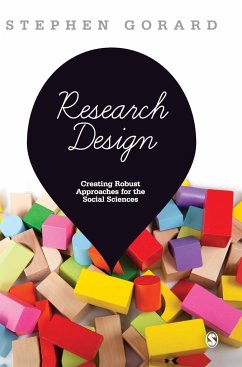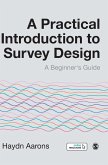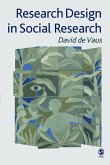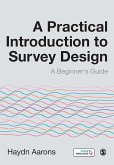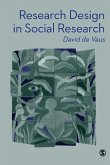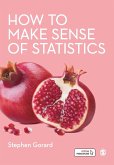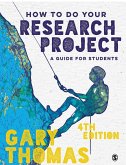Research design is of critical importance in social research, despite its relative neglect in many methods resources. Early consideration of design in relation to research questions leads to the elimination or diminution of threats to eventual research claims, by encouraging internal validity and substantially reducing the number of alternative explanations for any finite number of research 'observations'.
This new book: discusses the nature of design; gives an introduction to design notation; offers a flexible approach to new designs; looks at a range of standard design models; and presents craft tips for real-life problems and compromises. Most importantly, it provides the rationale for preferring one design over another within any given context. Each section is illustrated with case studies of real work and concludes with suggested readings and topics for discussion in seminars and workshops, making it an ideal textbook for postgraduate research methodscourses.
Based on the author's teaching on the ESRC Doctoral Training Centre "Masters in Research Methods" at the University of Birmingham, and his ongoing work for the ESRC Researcher Development Initiative, this is an essential text for postgraduate researchers and academics. There is no book like Research Design on the market that addresses all of these issues in an easy to comprehend style, for those who want to design research and make critical judgements about the designs of others.
This new book: discusses the nature of design; gives an introduction to design notation; offers a flexible approach to new designs; looks at a range of standard design models; and presents craft tips for real-life problems and compromises. Most importantly, it provides the rationale for preferring one design over another within any given context. Each section is illustrated with case studies of real work and concludes with suggested readings and topics for discussion in seminars and workshops, making it an ideal textbook for postgraduate research methodscourses.
Based on the author's teaching on the ESRC Doctoral Training Centre "Masters in Research Methods" at the University of Birmingham, and his ongoing work for the ESRC Researcher Development Initiative, this is an essential text for postgraduate researchers and academics. There is no book like Research Design on the market that addresses all of these issues in an easy to comprehend style, for those who want to design research and make critical judgements about the designs of others.
This is a landmark text in the neglected field of research design. Gorard provides a unique introduction to planning and executing a research project that is both grounded in well-established traditions and radical in its approach. Perhaps the most important methods text published in many years
Patrick White
University of Leicester
For the first time this book has made me realize the need and worth of doing real social science research. Page after page made me think clearly about research design and its essential importance. The book will have an everlasting impact on my view of any research project. I must say that it is the only book I have ever come across that reads so simply and so naturally about research design in social sciences. This book is surely the 'bible' of social science research for me
Nadia Siddiqui
Lecturer, Fatima Jinnah Women's University, Pakistan
Patrick White
University of Leicester
For the first time this book has made me realize the need and worth of doing real social science research. Page after page made me think clearly about research design and its essential importance. The book will have an everlasting impact on my view of any research project. I must say that it is the only book I have ever come across that reads so simply and so naturally about research design in social sciences. This book is surely the 'bible' of social science research for me
Nadia Siddiqui
Lecturer, Fatima Jinnah Women's University, Pakistan

